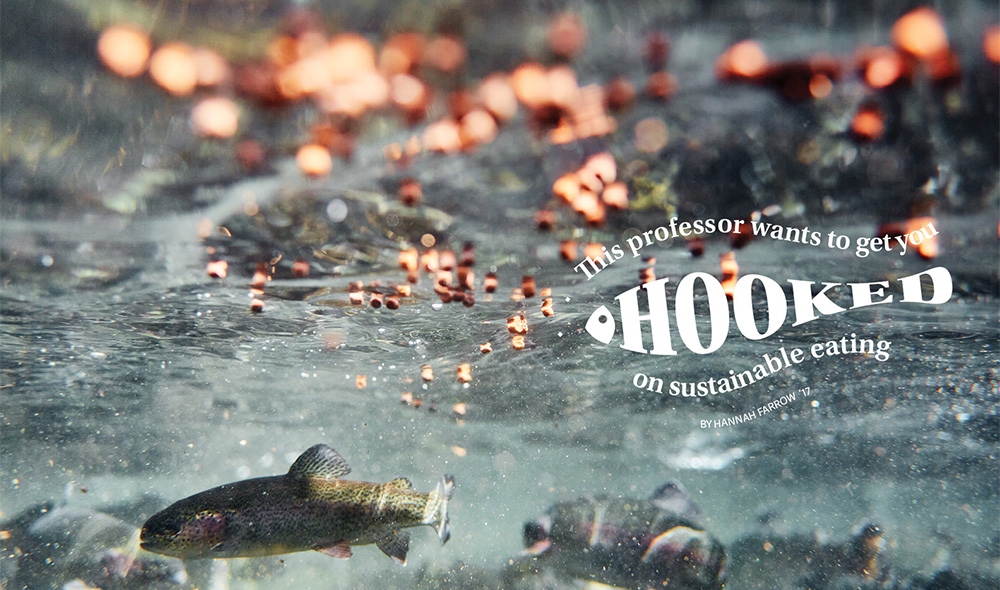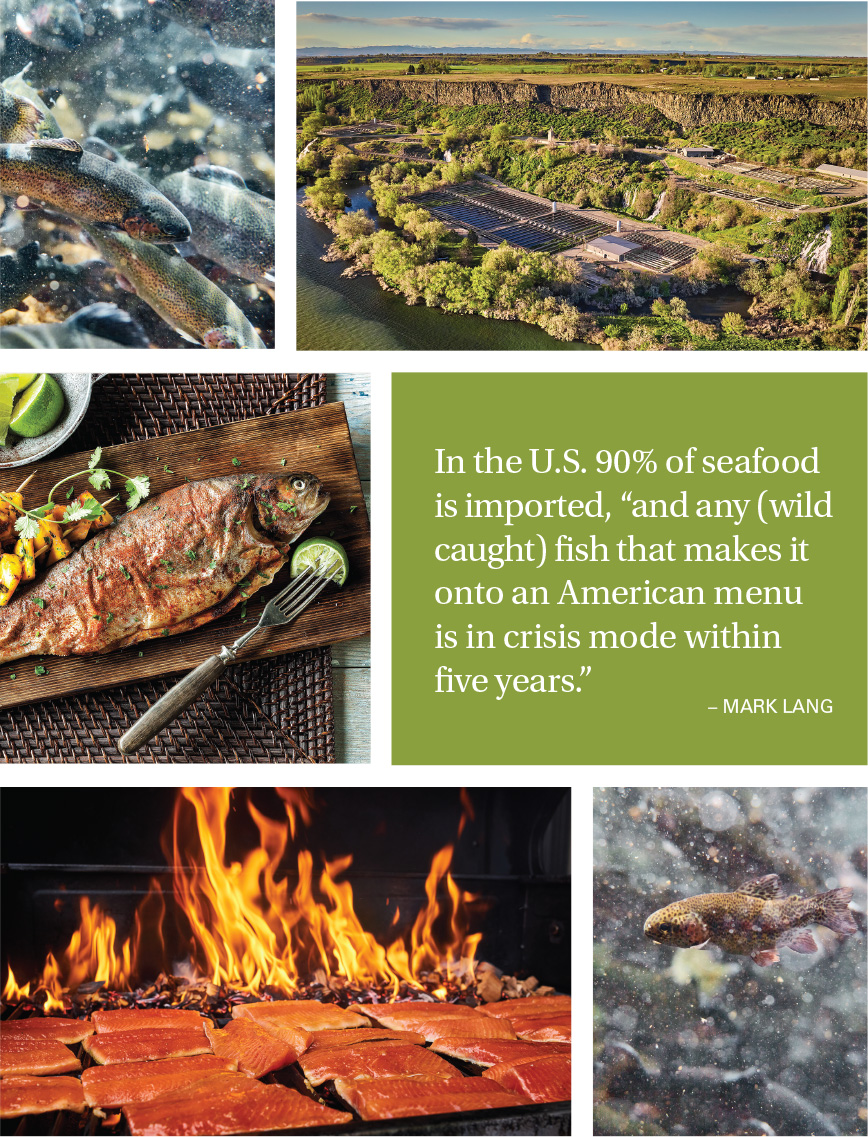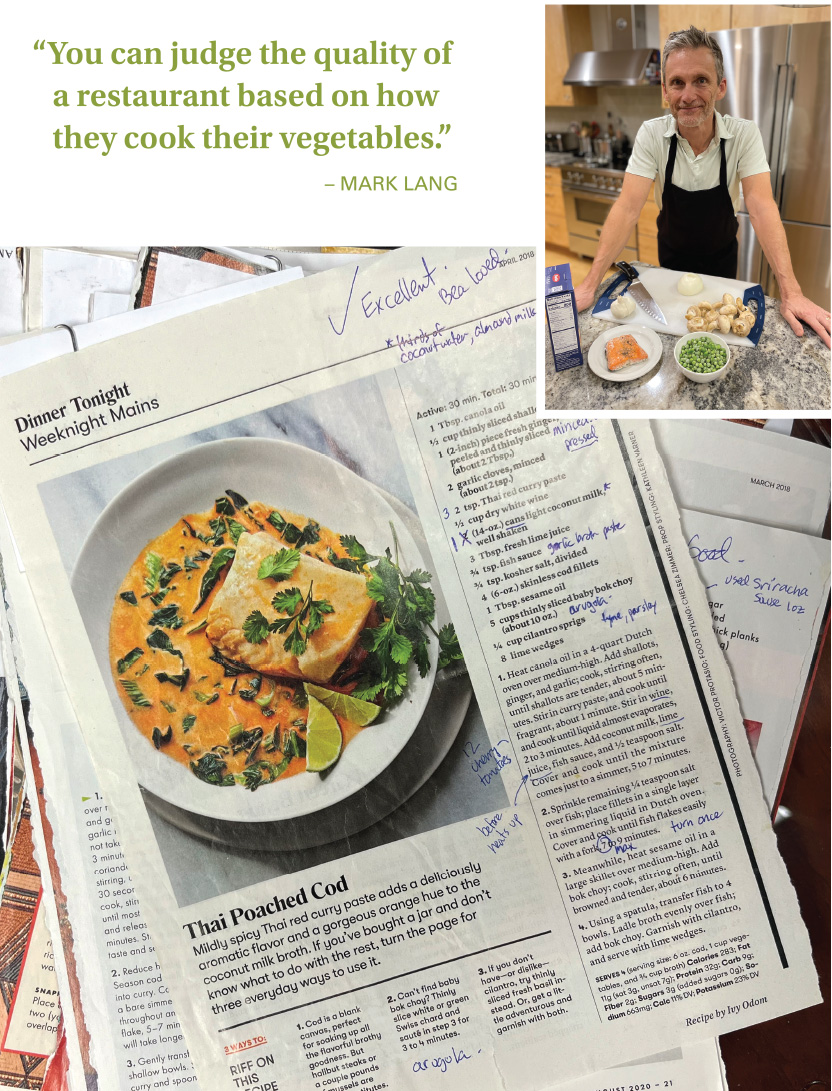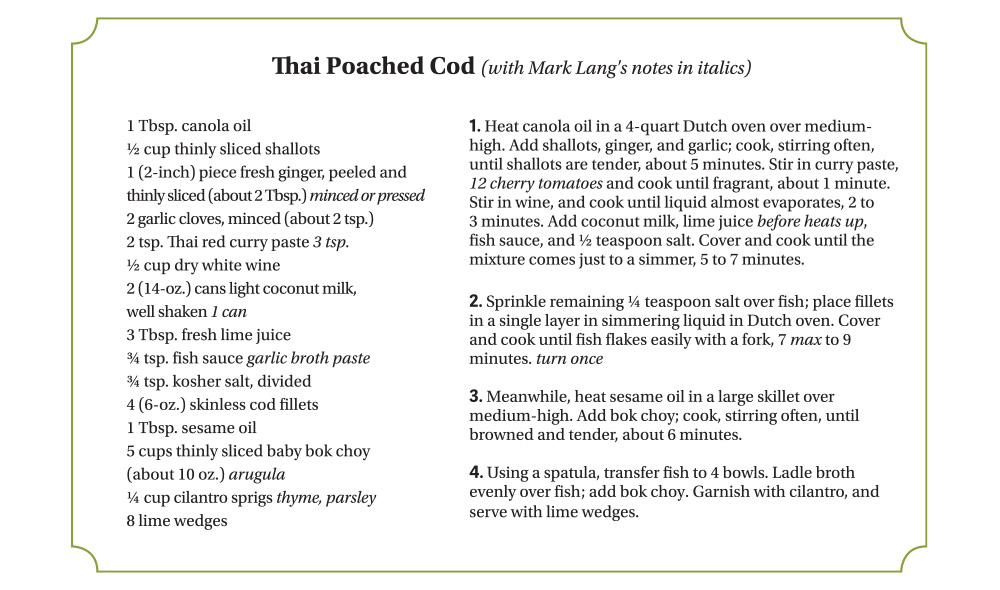Contact us
401 W. Kennedy Blvd.
Tampa, FL 33606-13490
(813) 253-3333
Mark Lang is a food marketing expert with a passion for aquaculture.

Courtesy of Aquaculture Stewardship Council
Stepping into a Publix GreenWise store feels different than other grocery chains. The lighting, softer. The music, calmer. The floors, earthy. Even the font of the logo looks like it was dug out of the ground. Organic. Warm. Natural.
All that is intentional and methodical, based on cus-tomer research. And all that can be traced back to Mark Lang’s work as Publix Supermarkets’ corporate director of marketing and research. He was there for 11 years until 2008 and is now an associate professor of marketing at UTampa.
With Publix, he helped the design teams create the GreenWise packaging. He built the marketing research team from the ground up. In his UTampa office today, three Publix aprons hang on the wall, trophies of sorts, symbolizing excellence in his former position.
Still, creating a green-grocery approach wasn’t enough for Lang, who says he made a lot of money for a lot of share-holders in the first half of his career, but, “I probably did nothing to help (sustainability). Helping people sell meat and cookies and all these other products that I never, ever questioned their sustainability.”
Lang defines sustainability as protecting the environment and people, and in a second act, he wanted to put his research, time and mind into driving change — one academic paper, interview or implemented marketing strategy at a time.
“I thought I can do work that's not profit-driven this time,” Lang said.
Lang left Publix and worked on his doctorate in business administration and marketing at Temple University while teaching food marketing at Saint Joseph’s University in Philadelphia for 10 years, until 2018. During that time, he also did a three-year stint as the editor-in-chief of the peer-reviewed Journal of International Food & Agribusiness Marketing.
He became a regular source for news outlets, like CNN, looking for an authoritative food marketing voice. Then in 2018, he brought his expertise to UTampa to teach undergraduate and graduate-level marketing courses.
Along the way, he became passionate about aquaculture, known as seafood farming, which he believes is a sustainable way to satisfy global protein demand — if done correctly.
In the U.S., he said, 90% of seafood is imported, and “any (wild caught) fish that makes it onto an American menu is in crisis mode within five years.” He cited orange roughy as an example, which were almost wiped out due to overfishing.
Worldwide, over 50% of seafood comes from aquaculture, according to the National Oceanic and Atmospheric Administration, and more aquatic animals were farmed than fished for the first time a few years ago, according to the U.N.’s Food and Agriculture Organization.
Simply put, the world consumes more farmed fish than it does wild caught.
“The onus is to do it right,” Lang said.
But domestically, farmed fish faces a hurdle. There’s a perception about how aquaculture is produced, with activist organizations questioning farms’ health and safety. Lang’s work aims to help the industry overcome what he says can be a misconception.
In October, Lang finished some work with the Aquaculture Stewardship Council, which certifies and labels responsibly sourced seafood. He had one main goal: shift America’s outlook on aquaculture. ASC is successful all over Europe — what needs to happen for it to be successful in the U.S.? (Hint: Branding. Mindset shift. Research. Education.)
But here, Lang had a dilemma. The ASC label helps consumers make environmentally and socially sustainable buying decisions, but one of the studies Lang published while working with the ASC found that people, when buying seafood, prioritize quality and safety benefits over environmental and social benefits.
One outcome of that research was the cleverly named ASC campaign, “A New Way to Seafood,” like “a new way to see seafood, but also a new way to create seafood,” Lang said.
He notes the importance of talking about personal benefits before talking about sustainability. “This can be a clean, healthy, high-quality product, and by the way, it can also be sustainable — it’s protecting the planet, it’s protecting people,” Lang said. “It’s a happy coincidence.”
Lang’s ASC work often took him into the field, or stream, as he visited fish farms around the world to better understand health and safety practices and help communicate them. In Boise, Idaho, for instance, he visited the fish farm Riverence with some editors from leading food magazines.
They saw the fish and their habitat up close. The water was clear. The feed was clean. They ate a grilled fish lunch to experience the end result.
The editors couldn’t believe the taste, the cleanliness, how healthy the fish felt — a debunking of aquaculture myths.
Lang’s time with ASC is over, but he left behind a blue-print for making a lasting impression. He completed the research. Created a strategy. Helped hire and train a team and an advertising agency.
“Here’s a professor having an impact on the real world, and it's sustainable,” Lang said. “It's making a contribution to something bigger. I like this stage in my career.”

Mark Lang in the Kitchen
How Mark Lang approaches his profession parallels how he approaches his personal life — with high energy and deep focus, curiosity and a desire for betterment.
Lang hails from Canada, where he grew a love for water and windsurfing. Four decades later, Lang still rips at Fred Howard Park in Tarpon Springs — a renowned hub for windsurfers — which played a large role in his decision to accept the position at UTampa.
Yet one hobby outweighs any other: Lang loves to cook.
“Through my work, I've been on farms, I've been on fishing boats, I've been on docks, I've been in fields, I've been in meat factories and fish factories,” Lang said. “My work has brought me really close to the making of food, which then really increases your connection to food.”
He rarely eats out, he says, but when he does, he and his wife, Bea, look for hole-in-the-wall, greet-the-chef-as-you-walk in spots, like local favorites Marker 39 and Mystic Fish.
“You can judge the quality of a restaurant based on how they cook their vegetables,” Lang said.

Associate Professor Mark Lang at home. Photo courtesy of Lang
He treasures a binder full of recipes clipped from magazines like Bon Appetit and Saveur, annotated with changes and reactions: “Used coconut milk.” “Bea hates.” “Don’t move in pan.” He’s proud of his Saveur Cooks Authentic French cookbook. He implements food rules from Michael Pollan’s Omnivore’s Dilemma.
Fish is a staple in his diet: salmon, shrimp, floun-der, and, on special occasions, yellowtail snapper. He tries to stick to few yet fresh ingredients. He believes carrots don’t have to be boring.
Lang buys his fish from Costco, Publix or Whole Foods, which “probably has the best fish program in the United States,” other than special small seafood markets, he said. Where you buy your seafood matters, he said. “You get what you pay for.”
He follows a few other guidelines. Like, he doesn’t buy on-sale seafood on Sunday or Monday — that’s the fish that didn’t sell the week prior. And he’s always looking for fish with clear eyes, not cloudy or with a shiny film on the surface.
Then, armed with the best ingredients, he and Bea cook at home almost every night. His all-time favorite recipe? Without hesitation, from Cooking Light, Thai poached cod.
“Excellent. Bea loved.”

Thai Poached Cod recipe from Cooking Light, April 2018
More UT News